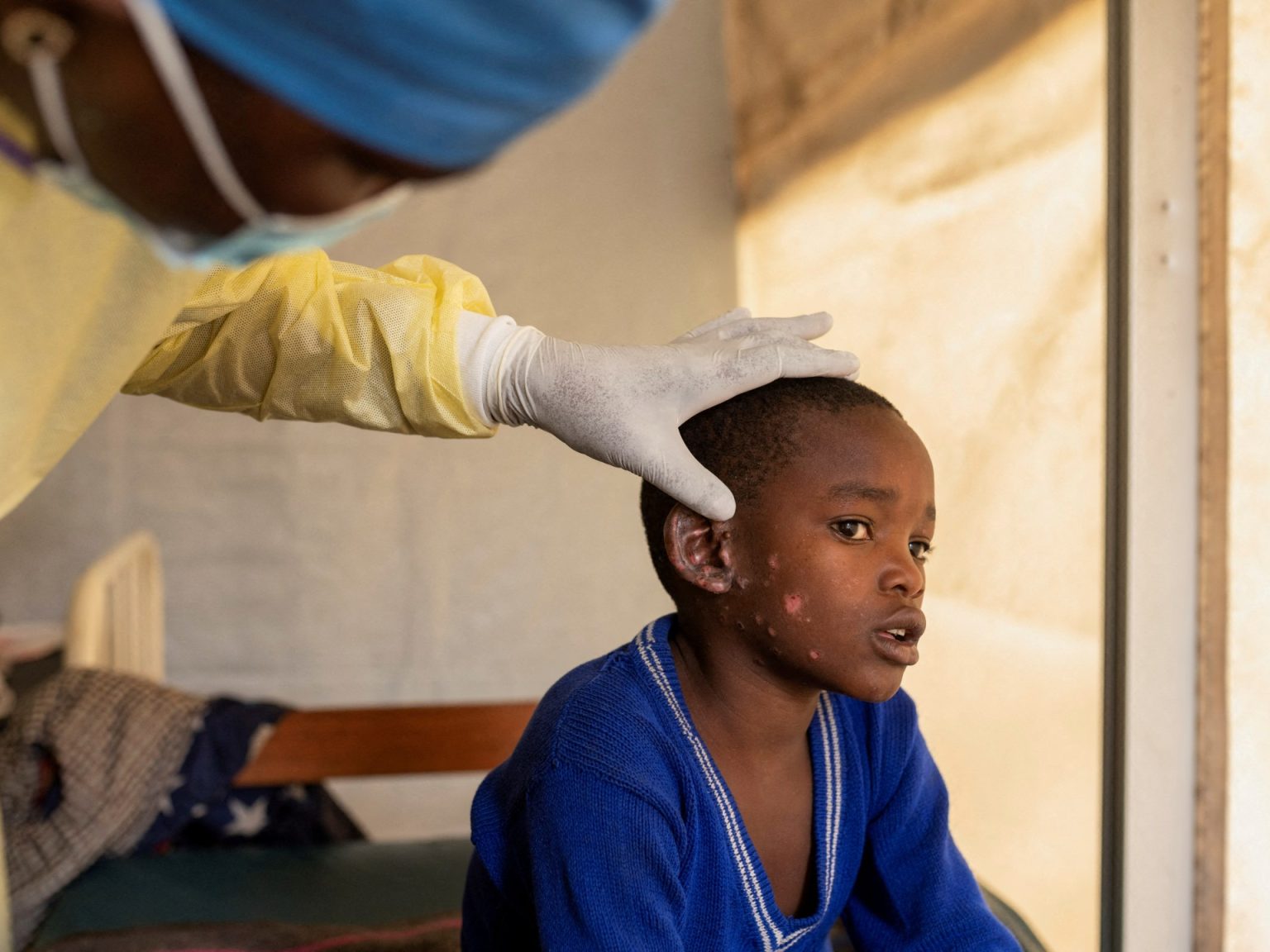Swedish officials have confirmed the first case of the more dangerous variant of mpox, known as clade I, outside of Africa. The Health and Social Affairs Minister Jakob Forssmed announced that Sweden has detected a case of the viral infection, which spreads through close contact and is considered a grave type of mpox. This marks the first time this variant has been identified outside of Africa, prompting concerns about its potential spread.
The infected individual in Sweden acquired the virus during a trip to a region in Africa where there is a major outbreak of mpox clade I. Swedish state epidemiologist Magnus Gisslen stated that the person sought medical assistance in Stockholm and has since received care. Despite this case being reported, Gisslen reassured the public that the risk to the general population remains low, according to the European Centre for Disease Prevention and Control. However, the confirmation of this case highlights the global threat posed by mpox and the need for coordinated efforts to contain its spread.
The World Health Organization (WHO) recently declared mpox a global public health emergency for the second time in two years, in response to the outbreak in the Democratic Republic of Congo (DRC) that has also spread to neighboring countries. As of the announcement, mpox has resulted in 548 fatalities in the DRC this year alone, prompting concerns about its potential to cause further devastation in affected regions. The Africa Centers for Disease Control and Prevention also declared mpox a public health emergency within the continent, underscoring the urgent need for international collaboration to address these outbreaks and prevent further loss of life.
In light of the escalating situation, WHO chief Tedros Adhanom Ghebreyesus emphasized the importance of a coordinated international response to combat the spread of mpox and save lives. With multiple variants of the virus circulating in different regions, the need for swift and decisive action has become increasingly apparent. As global health authorities mobilize their efforts to contain the outbreak and provide medical care to those affected, the focus is on preventing further transmission of the disease and ensuring the well-being of populations at risk.
While the detection of mpox clade I in Sweden represents a concerning development, it also serves as a reminder of the interconnected nature of global health security. The spread of infectious diseases knows no borders, making it crucial for countries to collaborate and share resources in the fight against outbreaks. By staying vigilant and implementing effective public health measures, nations can work together to contain the spread of mpox and protect the health and safety of their populations.
As the world grapples with the ongoing threat of mpox and other infectious diseases, the importance of international cooperation and solidarity cannot be overstated. By pooling resources, sharing knowledge, and coordinating responses, countries can mitigate the impact of outbreaks and prevent them from escalating into global emergencies. With the confirmation of mpox clade I in Sweden serving as a wake-up call to the potential dangers of the virus, the need for proactive measures and swift action has never been more urgent. Only through unified efforts and a shared commitment to public health can we effectively combat the spread of infectious diseases and safeguard the well-being of communities worldwide.












